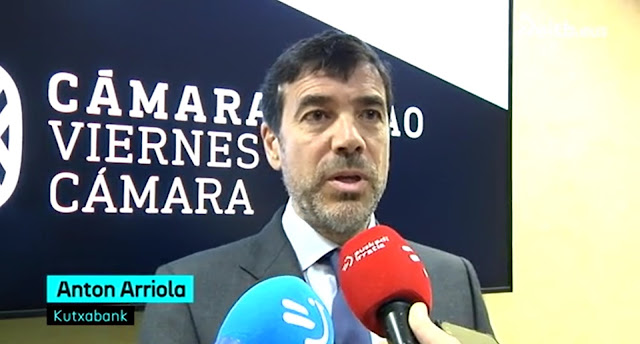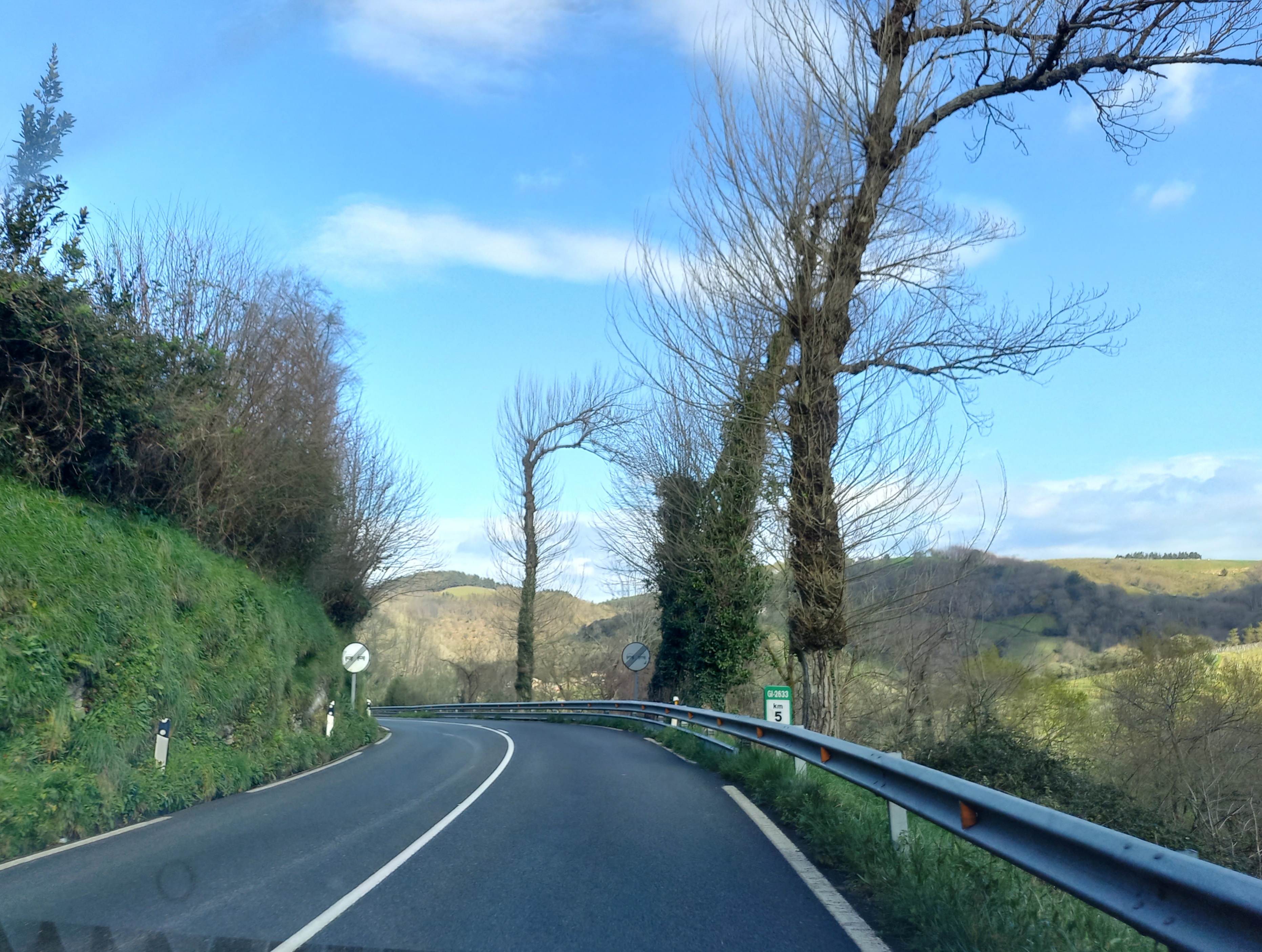A few words on the subject Davant/Matalaz
You can see "Matalaz/Lertxundi" when you look at the authors of the famous song Matalaz. However, in the middle of the century, Jean-Louis Davant publicly confesses that Matalaz's last words are invented by him, and that he did so "at the beginning of the void" for not having said it before. Calls for intellectual property (own or others) are frequent. It is not so common, however, to give up that property if it is not something that has been done with shame or misintent. The poem Matalaz is not a thing of bad intentions or shame. Why keep silent?
Knowing Davant's answer is very good (nothing like that! ). But I think all this gives us information about our traditions and myths (and, in general, all cultures). First, I will summarize the issue and then I will make some thoughts.
Matalaz's story is well known. In the 17th century Bernard Goihenetxe was a pastor of Mitikil, nicknamed Matalaz. Due to his peculiar and wandering public goods policy of kings and lords, Matalaz led in 1661 the uprising of 7,000 Sulatvian peasants. Four months later, the uprising collapsed and his neck was cut off from Lextarre's "khürüorain xürian" Matalazi.
The origin of the poem Matalaz is not so well known. The following is briefly summarized (mainly the interview in Berria and the collection of the text published in the magazine Enbata):
a. In the summer of 1956, student Davant came to the priest of Mitica Beñat Artegiet, from whom he received the supposed words of Matalaz: "I die without pain, because I live in Cyberoya. Perhaps with a egün the real cyberes, the real eüskaldüns, can descend to realize that French foxes and to remedy the popüli of the land that our parents can throw at them. ".
b. Davanti decides to replace these words with "strange tyrants" instead of "that French foxes." (Then he regretted discovering that the lords were Sulatins).
c. In 1970 Davant published Histoire du peuple basque/le peuple basque dans l'histoire. There, for the first time, are the last words of Matalaz. Davant soothes the true property of these words without giving much light: "C'est du moins ce que nous rapporte la tradition orale" ("This is what the oral tradition at least tells us").
d. In 1981 Benito Lertxundi collected his poem on the album Altabizkar/Itzaltzuko bardoari. The song is signed as follows: Matalaz/Lertxundi. This original "death of foreign tyrants" becomes "death of foreign tyrants." Davant complains that he has not yet claimed the property.
e In 2023, half a century after his publication, tired of the permanent deformation of words, Davant publicly recognizes that they are invented by him. He admits it in several places: his news of Vasconia seen from the north (2022: in book 280-281), in a chronicle of Enbata magazine and in an interview in the newspaper Berria.
The value of symbols is not a literal truth, but symbols must be a truth. In the dissemination of the symbols, anonymity and popularity contribute to the communication of the symbols. So it's not casual Davant's long tail.
I will not discuss subjective issues here. Davant’s great work is not in doubt. We must demand and above all read. However, from the point of view of a historian, it is clear that there are some serious problems. For starters, a broken phone. On the one hand, the free translation of the last words of Matalaz (by Artegiet/Davant). On the other hand, the free translation of a poem (by Lertxundi). Secondly, the real sources of information have been hidden. It is a clear example of the "invented traditions" denounced by Eric Hobsbawn. Matalaz's latest words are an invention.
While accepting all this, some spontaneous reflections should be made. First, to stress forever the difference between myth and history. The poem Matalaz must be conceived as an artistic expression, a beautiful poem that holds an idea. Anyone who has studied at a Catholic school can understand what I'm talking about. The Bible is full of religious truths that are not literal truths, starting with Genesis. The success and the bomb of a poem or myth comes not only from the truth, but from its artistic and symbolic value. John Armstrong, a leading researcher, offers us an interesting concept, the complex symbol of myths, in which myth, symbol and communication converge. The myth is content. The symbol is the middle, the middle. Communication is the expansion of the symbol that constantly renews. The uprising and tragic death of Matalaz is a myth. The poem Matalaz and the song are symbols. The elibat of this myth of Matalaz can mark a communication milestone. The first, when Davant posts Matalaz's last words. The second, when Lertxundi's song is published.
The value of symbols is not a literal truth, but symbols must be a truth. In the dissemination of the symbols, anonymity and popularity contribute to the communication of the symbols. So it's not casual Davant's long tail. On the other hand, not to tell the truth at first, Davant has had an obstacle to denouncing the manipulation of words. One distortion prevents the denunciation of another. The present confession has interrupted this chain.
Enrique Aramendia Muneta, argileku.eus
Bidali zure iritzi artikuluak iritzia@argia.eus helbide elektronikora
ARGIAk ez du zertan bat etorri artikuluen edukiarekin. Idatzien gehienezko luzera 4.500 karakterekoa da (espazioak barne). Idazkera aldetik gutxieneko zuzentasun bat beharrezkoa da: batetik, ARGIAk ezin du hartu zuzenketa sakona egiteko lanik; bestetik, egitekotan edukia nahi gabe aldatzeko arriskua dago. ARGIAk azaleko zuzenketak edo moldaketak egingo dizkie artikuluei, behar izanez gero.
We have had to endure another attack on our language by the Department of Education of the Government of Navarre; we have been forced to make an anti-Basque change in the PAI program. In recent years, by law, new Model D schools have had to introduce the PAI program and have had... [+]
Public education teachers have the need and the right to update and improve the work agreement that has not been renewed in fifteen years. For this, we should be immersed in a real negotiation, but the reality is deplorable. In a negotiation, the agreement of all parties must be... [+]
A few weeks ago, on Diputación Street, in the centre of Vitoria-Gasteiz, two men threw a homeless person off the small landing outside the place where he slept. In addition to being thrown away, a metal railing was immediately placed in front of the lonja. Although the place... [+]
From linguistics or glotophobia and, of course, hatred against Basque, we have often seen our Basque become the dandruff of all sticks. Last of all, the president of Kutxabank, Anton Arriola, has been shaking our language and giving us galantas.The President of Kutxabank,
... [+]
Do not look for this connection from Ezkio or Altsasu, let alone crossing the Ebro River through Castejón. The connection, or rather the connections, between the Basque Y and the AVE of Navarre is already a reality. It is these links in the plural that should concern us and... [+]
Don't make a fuss, don't confront, don't victimize... and obey. As oppressed subjects, in this case as Basques, we talk, how many times have we had to listen to them? Ironically, two years ago, at the Euskalale Independentiston Meeting, Esne Arzallus said: "We have arrived here,... [+]
Aurten "Israel Premier Tech" txirrindularitza talde israeldarra ez da Lizarraldeko Miguel Indurain Sari Nagusia lasterketara etorriko. Berri ona da hori Palestinaren askapenaren alde gaudenontzat eta munstro sionistarekin harreman oro etetea nahi dugunontzat, izan... [+]
Intsumituek denbora luzez egindako borroka gogorra eta mingarria izan zen, baina irabazi zuten, eta garaipen hura behin betikoa izango zela uste genuen, atzera bueltarik gabea. Baina badirudi, politikari batzuen ahotik aterata, eskalada militaristari gorazarre egin eta berriz... [+]
Punto Bobo liburuaren irakurketan murgilduta, Itxaso Martin Zapirain egilearen Eromena, Azpimemoria eta Isiltasunak Idazten ikerketa lanean sentitu nuen egiazkotasun eta maila etikoarekin egin dut berriz ere topo. Eta hortaz, hara bueltatu. “Oihu izateko jaio zen isiltasun... [+]
Dirudienez, Euskal Herrian migrazioa arazo bilakatu da azken bi hamarkadetan. Atzerritarrez josi omen dira gure lurrak. Gure kultura arriskuan omen dago fenomeno “berri” horren ondorio. Lapurretak, bortxaketak, liskarrak… Bizikidetza arazo horiek guztiak... [+]
Azken hamarkadetan euskararen biziberritzeak duen erronka handienetakoa, euskararen ezagutzaren unibertsalizazioarekin batera, erabilerarena da. Askotan, gazteen euskararen erabileran jarri ohi dugu fokua, baita euskararen erabilerak izan duen eta izan dezakeen bilakaeraren... [+]
Goizean jaiki orduko hasten dira desegokitasunak. Beharbada lotarako erabili duzun lastaira ere ez zen egokiena. Baina, ezin ba idatzi desegoki sentiarazten nauten guztiez. Horregatik, udaberriko ekinozioa –egunaren eta gauaren arteko oreka– dela eta, oraindik ere,... [+]
Ez da gauza berria politikari profesionalak gizarteko arazoak estaltzeko ahaleginetan ibiltzea. Azkenaldian Denis Itxaso -EAEko Etxebizitza sailburua- entzun dugu etxegabetzeei garrantzia kenduz eta aditzera emanez gurean bazterreko fenomenoa direla; eta Begoña Alfaro... [+]
Antropozentrismoaren aldaera traketsena eurozentrismoa izan zen. Europako mendebaldea, geografikoki, Kontinente Euroasiarraren penintsula txiki bat besterik ez da, baina lau mende luzez gertaera demografiko, teknologiko eta ideologiko batzuk zirela medio, bazter horretako... [+]










